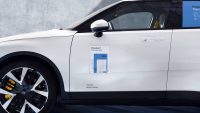Damning new data has revealed the government is currently not on track to meet its target of banning new petrol and diesel vehicles from 2030.
Statistics gathered as part of Auto Trader’s Road to 2030 Report found that EVs’ share of the retail market is falling behind where it needs to be.
Experts are therefore calling on ministers to step in and come up with a ‘detailed programme of tax incentives to improve the affordability of EVs’.
The report found that buyer interest in new EVs has dropped by almost two thirds – or 65 per cent – since the beginning of 2022.
Several factors have been suggested as the reasons behind the slump, including the ongoing cost-of-living crisis, higher borrowing costs, sky-high energy prices.
Despite recent price cuts from the likes of Tesla, Auto Trader says there remains a lack of affordable choices when it comes to new EVs.
The study found that, despite being the most popular price bracket on Auto Trader, there is a huge shortage of new electric models costing between £20,000 – £30,000
On average, a new EV currently costs around 37 per cent more than a petrol or diesel equivalent – a figure which has stubbornly remained at the same level since June of last year.
The report also found that, below £30,000, there is currently nine times fewer EVs available than traditionally fuelled models.
‘Robust’ used EV market showing signs of hope despite recent struggles
In recent months, the collapsing prices of used EVs have never been far away from the headlines.
Last week, we reported how car supermarket group Car Planet are now refusing to stock used electric cars due to them being deemed ‘high risk’.
That followed similar sentiments being expressed by a panel of independent dealers at our Car Dealer Live conference in Gaydon last month.
In response, EV retailer Martin Miller told Car Dealer that not stocking used EVs was a ‘silly mistake’.
Now, Auto Trader’s research has painted the used EV market as being in a ‘robust’ position demand currently up 30 per cent year-on-year.
The upwards curve is being powered largely by a recent surge in the number of used electric vehicles entering the market, providing consumers with greater choice than ever before.
On Auto Trader, the current volume of second-hand EVs is up 258 per cent on the same period last year.
Experts are now backing the growth in supply to continue but admitted that models are currently undergoing ‘significant’ price drops due to supply growing at a faster rate that demand.
Data shows that since reaching a peak of £40,728 in July 2022, the average price of a second-hand electric car currently stands at £31,767.
In the first 17 days of April prices dropped 17 per cent on a like-for-like basis, when compared with the same period in 2022.
At the other end of the spectrum, the average price of second-hand petrol and diesel cars are up 5.4 per cent (£16,312) and 3.4 per cent (£16,518) respectively, whilst the broader market is up three per cent (£17,888).
When it came to days-to-sell used petrol and diesel car took a respective average of 25 and 27 days to leave forecourts.
Meanwhile EVs took 45, despite typically selling five days faster than petrol cars as recently as last summer.
Among the fastest-selling electric vehicles are the Kia EV6 (16 days) and the Tesla’s Model 3 (14 days).
Commenting on the findings, Ian Plummer, Auto Trader’s commercial director, said: ‘We have the broadest single view of EVs, and as our data highlights, the market is incredibly nuanced, and so a broad-brush rarely reflects the true picture.
With the EV market still maturing, its critical to follow the live retail data to identify profitable electric stock opportunities – to ensure you’re buying the right car for your market at the right price, selling them at the right price, and securing the best possible margin in the process.
‘These are difficult times for the UK’s electric ambitions, however, and we’re in danger of veering off-track.
Although used electric demand remains buoyant, the wider EV market is in a precarious position.
‘To avoid more than just a small pothole on the road to 2030, more information, more incentives, and more equality is urgently required.’
Auto Trader sets out demands
One of the biggest changes coming up for EV owners is the introduction of Vehicle Excise Duty on electric cars, which is set to be introduced next year.
Ahead of the change, Auto Trader has called on the government to introduce a series of tax breaks to boost the transition towards eco-friendly motoring.
The firm is calling for
- Fairer charging costs: by equalizing VAT on public and private charging.
- More incentives to make EVs affordable for all: such as reducing VAT on used EVs and lower or interest free rates on EV financing deals.
- Initiatives to build both buyer and seller confidence in used EVs with a focus on battery health: Research shows that for car buyers, the top concerns about used EVs are related to battery health and so adopting common standards on battery health and charging terminology should be a top priority for government and industry.
Other possible initiatives include free parking and charging in certain locations, as seen in France in Norway.




































